Events
| Name | organizer | Where |
|---|---|---|
| MBCC “Doing Business with Mongolia seminar and Christmas Receptiom” Dec 10. 2025 London UK | MBCCI | London UK Goodman LLC |
NEWS
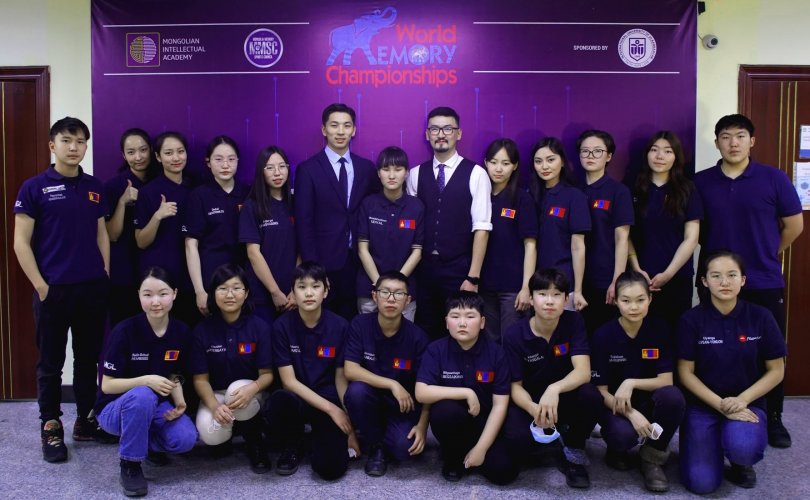
Mongolian team takes first place at World Memory Championships www.montsame.mn
Memory athletes aged between 10 and 24 of the Mongolian Intellectual Academy took part in the 30th virtual World Memory Championships where 366 individuals from 18 countries competed in 10 events.
The competition’s results were announced on February 21, according to which, five memory athletes in Mongolia’s 2021 team have qualified for the International Master title and grand master, 2017 world champion, Guinness record holder N.Munkhshur became world champion for the second time with her overall score.
Moreover, the Mongolian team finished in first place with 21,435 points by winning 33 (10 gold, 12 silver and 11 bronze) of the total 90 medals.

Asia stocks fall as Ukraine-Russia tensions climb www.bbc.com
Asian stocks slipped on Tuesday on fears that escalating Ukraine-Russia tensions will impede economic recovery.
Japan's Nikkei 225 index fell almost 2%, while the Kospi in South Korea lost 1.4% in early trading.
There are concerns that rising tensions in Eastern Europe will cause oil prices to rise and worsen the supply chain disruptions businesses face.
Russian President Vladimir Putin has recognised Ukraine's breakaway rebel-held regions as independent states.
The self-declared People's Republics of Donetsk and Luhansk are home to Russia-backed rebels who have been fighting Ukrainian forces since 2014.
Russia's move effectively ends peace talks in the region, which has been under a tenuous ceasefire for years.
The jitters among investors come as the global economy is still recovering from the impact of the coronavirus pandemic.
E-mini futures for the S&P 500 retreated 1.5%. That of the Dow Jones index fell 1.3%, while Nasdaq 100 e-mini futures gave up 2.2%.
Europe saw broader losses on Monday with Germany's Dax index and France's Cac 40 closing over 2% lower.
Tina Teng, a market analyst at CMC Markets, said "Risk-off sentiment led the broader market losses as the geopolitical tensions are at a boiling point".
"The three US index futures erased early gains and closed lower, pointing to a lower open in the US stocks on Tuesday," she added.
The risk of war is at the forefront of investors' minds, said Song Seng Wun, a Singapore-based economist at CIMB Private Banking.
He said markets were a "deep sea of red as the Ukraine crisis worsens".
"There are fears that freight and shipping costs that are already at elevated levels will climb higher because of demand-supply disruptions," he told the BBC.
Oil prices climbed above $95 ($70) per barrel on Tuesday. Brent crude, the international benchmark, reached $95.39 in Asian trading.
The West Texas Intermediate contract jumped over 3% to almost $94 a barrel.

China plans state-backed platform to buy iron ore www.bloomberg.com
China’s latest bid to wrest control of soaring iron ore prices is a plan to make global suppliers negotiate sales to the world’s biggest market through a centralized platform.
Beijing wants all purchases of the steelmaking material conducted through a single state-backed platform that’s under preparation, according to people familiar with the matter. At the moment, Chinese businesses including steel mills can negotiate spot purchases independently.
The plan aims to stabilize the steelmaking ingredient over the long-term, and is part of a broader focus on boosting China’s influence over the price of commodities, the people said. Iron ore’s spot market is relatively small, but prices there determine how much steel mills pay in long-term contracts.
China churns out more than half the world’s steel, and its iron ore imports last year were worth nearly $180 billion. Its steel industry has long complained at the pricing power it says is held by a handful of giant international mining companies. Authorities are also keen to head off inflation as Beijing rolls out stimulus measures in 2022 that could reboot steel demand.
China’s National Development and Reform Commission didn’t immediately respond to a faxed request for comment.
Pushing back
The latest proposals add to a flurry of actions and announcements that last week quashed iron ore’s powerful rally from mid-November. Authorities hosted a series of meetings with traders, culminating in a Thursday gathering where major global commodity firms were asked to draw down stockpiles and cooperate with a probe into possible “illegal” activities.
The cost of iron ore is largely tied to daily spot-market assessments from third-party agencies including S&P Global Platts. Long-term contracts — which cover the vast majority of supplies — are based on averages of the spot price over agreed time periods, such as monthly or quarterly.
High stakes
This regime replaced a system of high-stakes annual price talks, which collapsed in 2010 amid pressure from overseas iron ore miners. In December 2020, with prices also rallying before a round of government stimulus, China’s steel mills said the price mechanism had failed.
Centralized negotiations are by no means unprecedented for China’s purchases. A group of China’s top copper smelters collectively bargains the price for annual supplies of raw materials, for example.
But general problems with such an approach include coordination across a huge number of buyers, and the potential for cargoes to be resold at higher prices. The latter was widespread before the breakdown of annual pricing earlier this century.
Beijing is also encouraging other moves to improve its position in iron ore, the people said. The government wants further mergers and acquisitions among big steelmakers, as well as more domestic output and the purchasing of stakes in mines outside China.
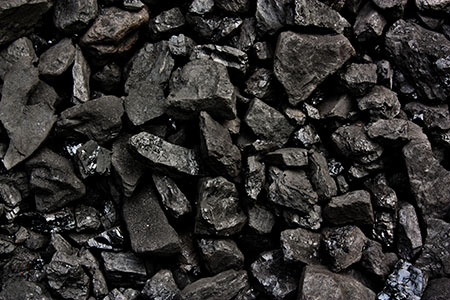
China approves three coal mines in Shaanxi, Inner Mongolia www.channelnewsasia.com
BEIJING : China's state planner has approved two coal mines Shaanxi province with annual capacity at six million tonnes and five million tonnes each, it said on Monday.
The National Development and Reform Commission has also approved a coal mine in the Inner Mongolia region with capacity at eight million tonnes per year, it said.
The three coal mines involve total investment at 24.12 billion yuan ($3.81 billion), according to the state planner.
($1 = 6.3313 Chinese yuan renminbi)
(Reporting by Min Zhang and Dominique Patton; Editing by Christopher Cushing)
Source: Reuters
Learning an essential winter skill in Mongolia www.peacecorps.gov
It was a hot summer day, five weeks into my training to become a Peace Corps Volunteer in Mongolia. I was living with my host family in a small northern village. Around us the hills were covered in yellow wildflowers. A few dozen trees dotted the horizon.
My Mongolian language skills were slowly improving, but my vocabulary was still limited. As I walked home from morning language classes, my host mom spotted me and called me towards the family truck. “Ashley! Naasha, naasha!” (come here) was among the first phrases I learned in Mongolia. As I neared, she continued to speak. I managed to catch a few words: “over there,” “fire,” and “learn.”
I still wasn't sure what we were up to as I climbed into the truck with my host mom, brother and sister. We headed toward the hills surrounding town, and the village grew smaller and smaller in the background. I took in the vast deep blue skies and seemingly endless sprawl of uninhabited land. The grazing goats and sheep looked peaceful as we drove by.
We reached the base of a large hill. Nearby, I noticed a fenced-in area with uneven, flattish brown clods, of all shapes and sizes, stacked in the middle. My host mom smiled at me and said, “garl” (fire). I still didn't understand what we were going to do. She pointed at the goats and sheep grazing in the distant fields and then handed me a burlap sack, motioning for me to follow her. To my surprise I watched as she and my little brother and sister started collecting the dried animal droppings from the ground.
It finally clicked. I realized that the brown clods I’d been looking at were stacks of dried animal dung collected to use as fuel. At home in the U.S., I used wood as fuel for camping or fireplaces, but during training in Mongolia, I learned that locals used many types of fuel, and animal dung was very popular in regions without forests.
The four of us fanned out across the field to collect dung in our bags. We stacked chunks on top of the storage piles and loaded pieces of the valuable fuel in the back of the truck to take home. The earthy smell of dried dung filled my nostrils, but it didn’t bother me much. I admired my family’s ingenuity in using the available resources to survive.
Back home, my host mom gave me a lesson in fire-making. I would need this crucial skill to survive Mongolian winters. While I had my share of campfires and bonfires in the U.S., fire starter, logs and lighter fluid were always on hand to get the fire going. In Mongolia wood, coal, dung, and matches are used to make fires for cooking and heating. With no forests nearby, logs were imported from other regions and then villagers cut them into smaller pieces to use as fuel.
My host mom showed me how to place small pieces of wood, paper, bits of trash and dung together in a pile. I lit a match and placed it close to the kindling. The paper around the edges of the pile lit up, but soon died out. Puzzled, I watched my host mom rearrange the kindling. She made a small hollow opening in the pile and told me to try again. I struck another match, and with more oxygen, the blaze was soon crackling. She smiled at me with satisfaction, knowing I would make it through the winter.
Throughout service, I made a fire every day inside my ger (yurt) during the cold months. My wood stove provided warmth and comfort throughout the long, frigid Mongolian winters. Every time I chopped wood, collected dung, or sat next to the warmth of the fire, I was grateful for my fire-starting skill, taught to me by my host mom. To this day, whenever I use my gas stove at home, I’m brought back to the time when I learned to make a fire by hand. Now more than ever, I appreciate the warmth, light and sociability that fire holds for me.
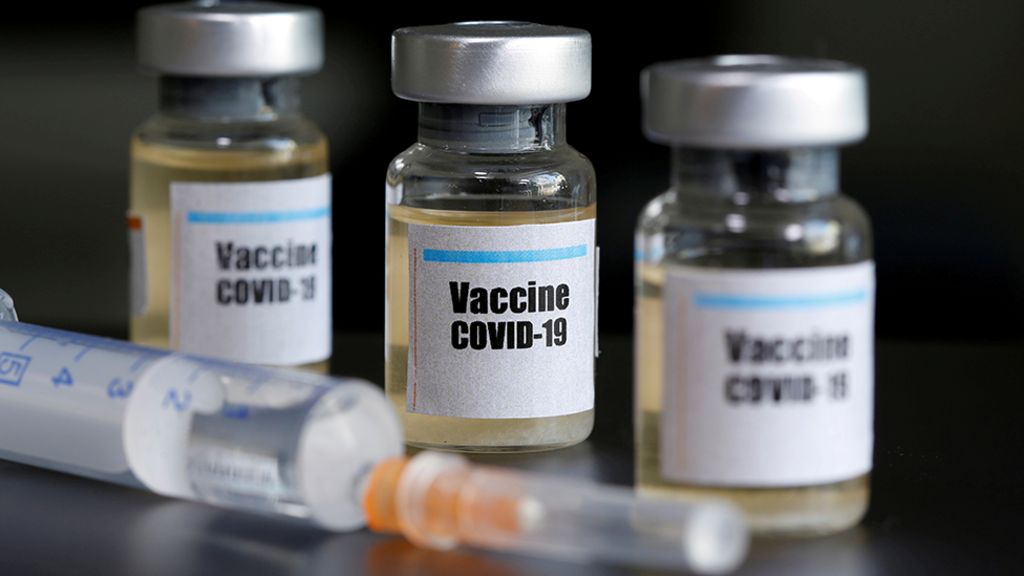
Japan to start COVID vaccinations for children www.nhk.or.jp
Japan's government will start shipping coronavirus vaccines this week to municipalities and medical facilities, for use by children aged between five and 11.
Vaccinations for that age group will be officially included in the public inoculation program on Monday.
The government plans to deliver a total of about 12 million doses of coronavirus vaccine nationwide through May. Inoculations are expected to begin in some areas as early as this month.
For children in this age group the vaccine will contain one-third of the dose for those aged 12 or above. Children will receive two jabs with a period of three weeks in between.
Unlike people aged 12 or older, children aged five to 11 are not required to try to receive a coronavirus vaccine as there is not yet enough data to verify its effectiveness against the Omicron variant.
Parental consent will also be required for children in the age group to be inoculated. The health ministry is calling on parents to have a thorough discussion with their children, as well as to consult with their home doctors before making a decision.
The ministry urges children with respiratory and other underlying health problems to be vaccinated as they have a higher risk of developing severe COVID symptoms.
The ministry does not recommend mass vaccinations at school. Children will be inoculated at vaccination sites in their municipalities, or at clinics on an individual basis.
There are concerns that some municipalities may find it difficult to secure doctors and staff to support vaccinations for children. The challenge is how to secure a system for children and their parents who wish to receive shots.

Cheese factories to be established in 18 soums in Khuvsgul www.montsame.mn
Cheese factories will be established in 18 soums of Khuvsgul aimag, one of the aimags having the most livestock.
MNT 4 billion was earmarked in the state budget for 2021 to open cheese factories in eight soums, Galt, Jargalant, Tsagaan-Uul, Renchinlkhumbe, Tsagaan-Uur, Ikh-Uul, Rashaant, and Tosontsengel and Khan Attribute LLC that won the project bid is working to open the factories this year.
In this year’s state budget, MNT 5 billion has been earmarked to build more cheese factories in 10 soums, Alag-Erdene, Arbulag, Burentogtokh, Tumurbulag, Tunel, Tarialan, Ulaan-Uul, Tsetserleg, Shine-Ider, and Erdenebulgan.
The establishment of cheese factories in rural areas will help herders process their milk locally and export the products abroad for increased income, said Ya.Erkhembayar, head of the aimag’s department for food and agriculture.
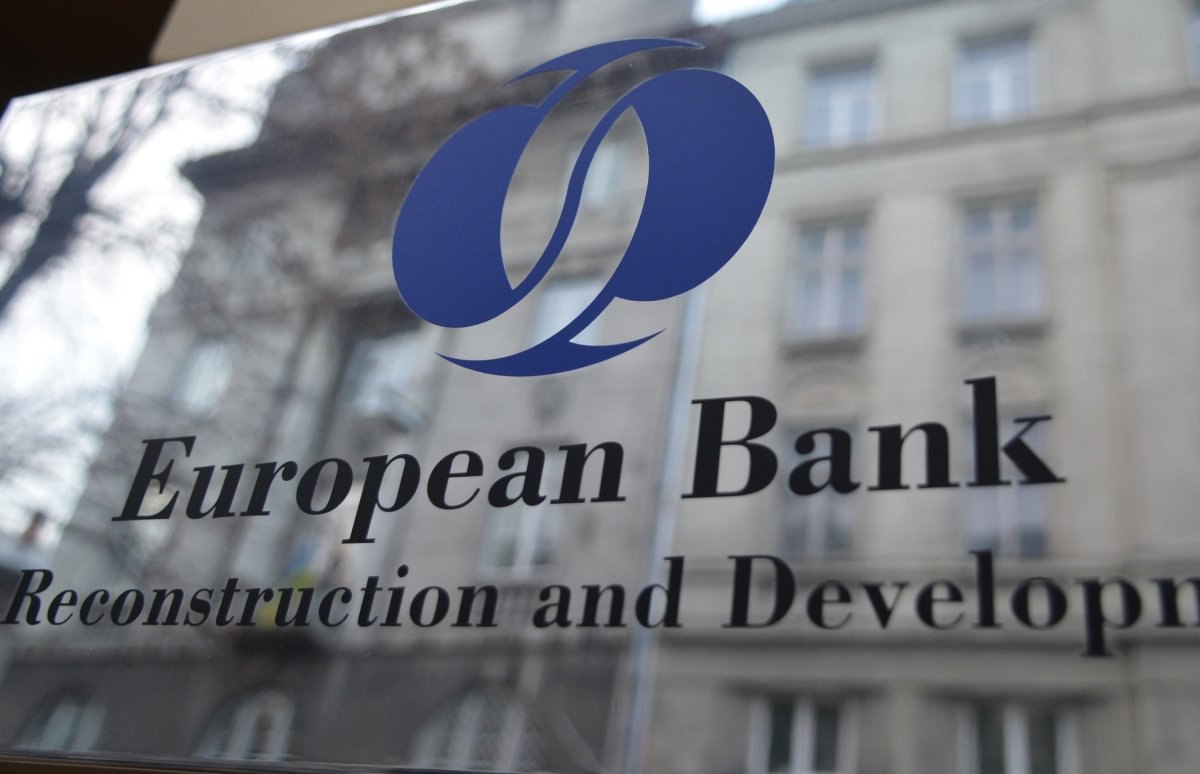
EBRD’s Women in Business Programme launched www.montsame.mn
Minister of Labour and Social Protection, head of the programme steering committee A.Ariunzaya took part in the opening ceremony of the European Bank for Reconstruction and Development (EBRD)’s Women in Business Programme (WiB) in Central Asia.
In her opening remarks, the Minister emphasized that the government of Mongolia is working towards an objective to move from welfare to work, announcing that the National Council for Employment is implementing the ‘Women's employment support program’ in 2022.
Minister A.Ariunzaya stressed the significance of implementing WiB that provides effective and equal opportunities to women through funding, consulting, and policy discussions in Mongolia with support from donors.
The programme launch took place during a meeting under the topic "How EBRD can support women-owned businesses". Co-funded by Women Entrepreneurs Finance Initiative and EBRD, WiB aims to support capacity building of women through increased economic opportunities.
EBRD is successfully implementing the programme in Kazakhstan and Tajikistan since 2015 and deems it significant to other Central Asian countries and Mongolia.
The Women in Business Programme in Central Asia plans to reach around 7,000 women-owned small and medium enterprises in Mongolia, Kyrgyzstan, Tajikistan, and Uzbekistan that all face gender- and policy-related issues in finding funding, knowhow and business opportunities.
The programme opening ceremony was attended by U.S. and British Ambassadors, EBRD Managing Director for Central Asia Zsuzsanna Hargitai, Head of EBRD in Mongolia Hannes Takacz, EBRD Managing Director for Financial Institutions Francis Malige, Head of Women Entrepreneurs Finance Initiative Secretariat, and representatives of Mongolia government and non-government organizations, non-bank financial institutions, and companies.
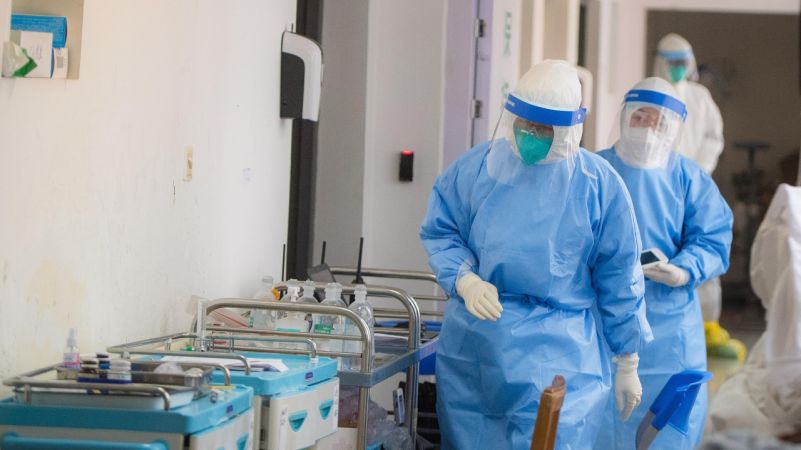
Mongolia reports lowest number of daily COVID-19 cases since early January www.xinhuanet.com
Feb. 21 (Xinhua) -- Mongolia registered 309 new COVID-19 infections over the past 24 hours, the lowest since Jan. 3, bringing the national tally to 462,406, the country's health ministry said Monday.
Meanwhile, no more COVID-19 related deaths were recorded in the past day, and the country's death toll remains at 2,087, it said.
So far, 66.8 percent of the country's 3.4 million people have received two COVID-19 vaccine doses, while more than 1 million people over 18 received one booster.
The country started to administer a voluntary fourth shot in January, and over 96,100 people have received it.
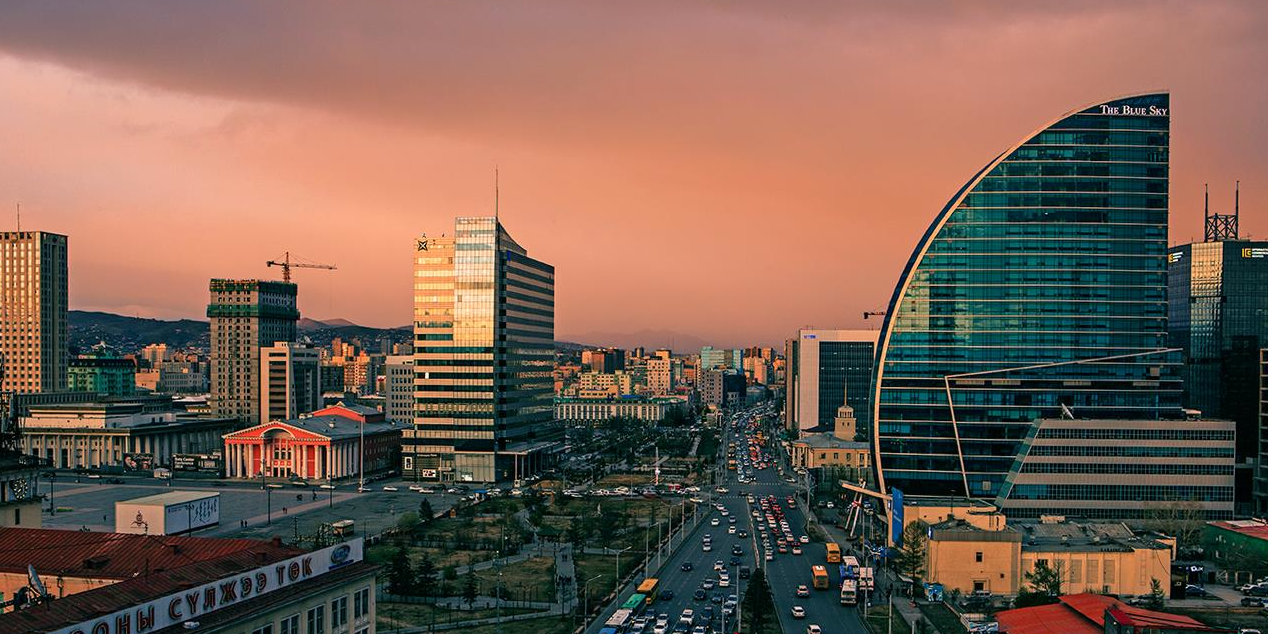
Export increased by 29.3 percent compared to the previous months www.montsame.mn
In January 2022, Mongolia traded with 117 countries from all over the world, and the total trade turnover reached USD 1.1 billion, of which USD 539.6 million were exports and USD 556.5 million were imports. The total foreign trade turnover decreased by USD 2.5 million (0.2 percent), where exports decreased by USD 100.2 million (15.7 percent) and imports increased by USD 97.7 million (21.3 percent) compared to the same period of the previous year. In January 2021, exports increased by USD 122.3 million (29.3 percent) and while imports decreased by USD 104.2 million (15.8 percent) compared to the previous month.
The foreign trade balance was in surplus of USD 181.0 million in January 2021 and while it was in deficit of 16.9 million in January 2022, decreased by USD 197.9 million compared to the same period of the previous year. In January 2022, trade balance deficit decreased by USD 226.5 million from previous month. Trade with China reached USD 520.4 million in January 2022, which is accounting 47.5 percent of the total trade turnover.
Bituminous coal and copper concentrates accounted for 36.6 percent and 48.1 percent of total exports to China, respectively, gold accounted for 99.8 percent of total export to Switzerland. In January 2022, USD 100.2 million decrease in exports from the same period of the previous year was resulted from USD 18.6 million decrease in copper concentrates and USD 77.9 million decrease in coal exports.
Exports border price of coal has been decreased in the last two consecutive months and crude petroleum was not been exported.
In January 2022, USD 122.3 million increase in exports from the previous month was mainly due to USD 111.2 million increase in copper concentrates exports.
In January 2022, 33.9 percent of the total imports were from Russia, 27.9 percent -- from China, 9.3 percent -- from Japan, 4.7 percent -- from the Republic of Korea, 3.0 percent -- from USA and 2.6 percent -- from Germany, which are accounting for 81.3 percent of the total imports.
In January 2022, 58.0 percent of the total imports from Russia were petroleum products, 75.2 percent of the total imports from Japan were cars, and 7.4 percent of the total imports from China -- electricity, 2.9 percent -- trucks and 89.7 percent -- imports of other products. The USD 97.7 million increase in imports from the same period of the previous year was mainly due to USD 15.0 million increase in diesel, USD 15.1 million increase in petrol, USD 12.2 million increase in cars.
Exports of mineral products, natural or cultured stones, precious metal, jewelry and textile articles products made up 98.4 percent of the total export. On the other hand, 65.0 percent of the total imports was mineral products, machinery, equipment and electric appliances, transport vehicle and its spare parts and food products.
National Statistics Office
- «
- 1
- 2
- 3
- 4
- 5
- 6
- 7
- 8
- 9
- 10
- 11
- 12
- 13
- 14
- 15
- 16
- 17
- 18
- 19
- 20
- 21
- 22
- 23
- 24
- 25
- 26
- 27
- 28
- 29
- 30
- 31
- 32
- 33
- 34
- 35
- 36
- 37
- 38
- 39
- 40
- 41
- 42
- 43
- 44
- 45
- 46
- 47
- 48
- 49
- 50
- 51
- 52
- 53
- 54
- 55
- 56
- 57
- 58
- 59
- 60
- 61
- 62
- 63
- 64
- 65
- 66
- 67
- 68
- 69
- 70
- 71
- 72
- 73
- 74
- 75
- 76
- 77
- 78
- 79
- 80
- 81
- 82
- 83
- 84
- 85
- 86
- 87
- 88
- 89
- 90
- 91
- 92
- 93
- 94
- 95
- 96
- 97
- 98
- 99
- 100
- 101
- 102
- 103
- 104
- 105
- 106
- 107
- 108
- 109
- 110
- 111
- 112
- 113
- 114
- 115
- 116
- 117
- 118
- 119
- 120
- 121
- 122
- 123
- 124
- 125
- 126
- 127
- 128
- 129
- 130
- 131
- 132
- 133
- 134
- 135
- 136
- 137
- 138
- 139
- 140
- 141
- 142
- 143
- 144
- 145
- 146
- 147
- 148
- 149
- 150
- 151
- 152
- 153
- 154
- 155
- 156
- 157
- 158
- 159
- 160
- 161
- 162
- 163
- 164
- 165
- 166
- 167
- 168
- 169
- 170
- 171
- 172
- 173
- 174
- 175
- 176
- 177
- 178
- 179
- 180
- 181
- 182
- 183
- 184
- 185
- 186
- 187
- 188
- 189
- 190
- 191
- 192
- 193
- 194
- 195
- 196
- 197
- 198
- 199
- 200
- 201
- 202
- 203
- 204
- 205
- 206
- 207
- 208
- 209
- 210
- 211
- 212
- 213
- 214
- 215
- 216
- 217
- 218
- 219
- 220
- 221
- 222
- 223
- 224
- 225
- 226
- 227
- 228
- 229
- 230
- 231
- 232
- 233
- 234
- 235
- 236
- 237
- 238
- 239
- 240
- 241
- 242
- 243
- 244
- 245
- 246
- 247
- 248
- 249
- 250
- 251
- 252
- 253
- 254
- 255
- 256
- 257
- 258
- 259
- 260
- 261
- 262
- 263
- 264
- 265
- 266
- 267
- 268
- 269
- 270
- 271
- 272
- 273
- 274
- 275
- 276
- 277
- 278
- 279
- 280
- 281
- 282
- 283
- 284
- 285
- 286
- 287
- 288
- 289
- 290
- 291
- 292
- 293
- 294
- 295
- 296
- 297
- 298
- 299
- 300
- 301
- 302
- 303
- 304
- 305
- 306
- 307
- 308
- 309
- 310
- 311
- 312
- 313
- 314
- 315
- 316
- 317
- 318
- 319
- 320
- 321
- 322
- 323
- 324
- 325
- 326
- 327
- 328
- 329
- 330
- 331
- 332
- 333
- 334
- 335
- 336
- 337
- 338
- 339
- 340
- 341
- 342
- 343
- 344
- 345
- 346
- 347
- 348
- 349
- 350
- 351
- 352
- 353
- 354
- 355
- 356
- 357
- 358
- 359
- 360
- 361
- 362
- 363
- 364
- 365
- 366
- 367
- 368
- 369
- 370
- 371
- 372
- 373
- 374
- 375
- 376
- 377
- 378
- 379
- 380
- 381
- 382
- 383
- 384
- 385
- 386
- 387
- 388
- 389
- 390
- 391
- 392
- 393
- 394
- 395
- 396
- 397
- 398
- 399
- 400
- 401
- 402
- 403
- 404
- 405
- 406
- 407
- 408
- 409
- 410
- 411
- 412
- 413
- 414
- 415
- 416
- 417
- 418
- 419
- 420
- 421
- 422
- 423
- 424
- 425
- 426
- 427
- 428
- 429
- 430
- 431
- 432
- 433
- 434
- 435
- 436
- 437
- 438
- 439
- 440
- 441
- 442
- 443
- 444
- 445
- 446
- 447
- 448
- 449
- 450
- 451
- 452
- 453
- 454
- 455
- 456
- 457
- 458
- 459
- 460
- 461
- 462
- 463
- 464
- 465
- 466
- 467
- 468
- 469
- 470
- 471
- 472
- 473
- 474
- 475
- 476
- 477
- 478
- 479
- 480
- 481
- 482
- 483
- 484
- 485
- 486
- 487
- 488
- 489
- 490
- 491
- 492
- 493
- 494
- 495
- 496
- 497
- 498
- 499
- 500
- 501
- 502
- 503
- 504
- 505
- 506
- 507
- 508
- 509
- 510
- 511
- 512
- 513
- 514
- 515
- 516
- 517
- 518
- 519
- 520
- 521
- 522
- 523
- 524
- 525
- 526
- 527
- 528
- 529
- 530
- 531
- 532
- 533
- 534
- 535
- 536
- 537
- 538
- 539
- 540
- 541
- 542
- 543
- 544
- 545
- 546
- 547
- 548
- 549
- 550
- 551
- 552
- 553
- 554
- 555
- 556
- 557
- 558
- 559
- 560
- 561
- 562
- 563
- 564
- 565
- 566
- 567
- 568
- 569
- 570
- 571
- 572
- 573
- 574
- 575
- 576
- 577
- 578
- 579
- 580
- 581
- 582
- 583
- 584
- 585
- 586
- 587
- 588
- 589
- 590
- 591
- 592
- 593
- 594
- 595
- 596
- 597
- 598
- 599
- 600
- 601
- 602
- 603
- 604
- 605
- 606
- 607
- 608
- 609
- 610
- 611
- 612
- 613
- 614
- 615
- 616
- 617
- 618
- 619
- 620
- 621
- 622
- 623
- 624
- 625
- 626
- 627
- 628
- 629
- 630
- 631
- 632
- 633
- 634
- 635
- 636
- 637
- 638
- 639
- 640
- 641
- 642
- 643
- 644
- 645
- 646
- 647
- 648
- 649
- 650
- 651
- 652
- 653
- 654
- 655
- 656
- 657
- 658
- 659
- 660
- 661
- 662
- 663
- 664
- 665
- 666
- 667
- 668
- 669
- 670
- 671
- 672
- 673
- 674
- 675
- 676
- 677
- 678
- 679
- 680
- 681
- 682
- 683
- 684
- 685
- 686
- 687
- 688
- 689
- 690
- 691
- 692
- 693
- 694
- 695
- 696
- 697
- 698
- 699
- 700
- 701
- 702
- 703
- 704
- 705
- 706
- 707
- 708
- 709
- 710
- 711
- 712
- 713
- 714
- 715
- 716
- 717
- 718
- 719
- 720
- 721
- 722
- 723
- 724
- 725
- 726
- 727
- 728
- 729
- 730
- 731
- 732
- 733
- 734
- 735
- 736
- 737
- 738
- 739
- 740
- 741
- 742
- 743
- 744
- 745
- 746
- 747
- 748
- 749
- 750
- 751
- 752
- 753
- 754
- 755
- 756
- 757
- 758
- 759
- 760
- 761
- 762
- 763
- 764
- 765
- 766
- 767
- 768
- 769
- 770
- 771
- 772
- 773
- 774
- 775
- 776
- 777
- 778
- 779
- 780
- 781
- 782
- 783
- 784
- 785
- 786
- 787
- 788
- 789
- 790
- 791
- 792
- 793
- 794
- 795
- 796
- 797
- 798
- 799
- 800
- 801
- 802
- 803
- 804
- 805
- 806
- 807
- 808
- 809
- 810
- 811
- 812
- 813
- 814
- 815
- 816
- 817
- 818
- 819
- 820
- 821
- 822
- 823
- 824
- 825
- 826
- 827
- 828
- 829
- 830
- 831
- 832
- 833
- 834
- 835
- 836
- 837
- 838
- 839
- 840
- 841
- 842
- 843
- 844
- 845
- 846
- 847
- 848
- 849
- 850
- 851
- 852
- 853
- 854
- 855
- 856
- 857
- 858
- 859
- 860
- 861
- 862
- 863
- 864
- 865
- 866
- 867
- 868
- 869
- 870
- 871
- 872
- 873
- 874
- 875
- 876
- 877
- 878
- 879
- 880
- 881
- 882
- 883
- 884
- 885
- 886
- 887
- 888
- 889
- 890
- 891
- 892
- 893
- 894
- 895
- 896
- 897
- 898
- 899
- 900
- 901
- 902
- 903
- 904
- 905
- 906
- 907
- 908
- 909
- 910
- 911
- 912
- 913
- 914
- 915
- 916
- 917
- 918
- 919
- 920
- 921
- 922
- 923
- 924
- 925
- 926
- 927
- 928
- 929
- 930
- 931
- 932
- 933
- 934
- 935
- 936
- 937
- 938
- 939
- 940
- 941
- 942
- 943
- 944
- 945
- 946
- 947
- 948
- 949
- 950
- 951
- 952
- 953
- 954
- 955
- 956
- 957
- 958
- 959
- 960
- 961
- 962
- 963
- 964
- 965
- 966
- 967
- 968
- 969
- 970
- 971
- 972
- 973
- 974
- 975
- 976
- 977
- 978
- 979
- 980
- 981
- 982
- 983
- 984
- 985
- 986
- 987
- 988
- 989
- 990
- 991
- 992
- 993
- 994
- 995
- 996
- 997
- 998
- 999
- 1000
- 1001
- 1002
- 1003
- 1004
- 1005
- 1006
- 1007
- 1008
- 1009
- 1010
- 1011
- 1012
- 1013
- 1014
- 1015
- 1016
- 1017
- 1018
- 1019
- 1020
- 1021
- 1022
- 1023
- 1024
- 1025
- 1026
- 1027
- 1028
- 1029
- 1030
- 1031
- 1032
- 1033
- 1034
- 1035
- 1036
- 1037
- 1038
- 1039
- 1040
- 1041
- 1042
- 1043
- 1044
- 1045
- 1046
- 1047
- 1048
- 1049
- 1050
- 1051
- 1052
- 1053
- 1054
- 1055
- 1056
- 1057
- 1058
- 1059
- 1060
- 1061
- 1062
- 1063
- 1064
- 1065
- 1066
- 1067
- 1068
- 1069
- 1070
- 1071
- 1072
- 1073
- 1074
- 1075
- 1076
- 1077
- 1078
- 1079
- 1080
- 1081
- 1082
- 1083
- 1084
- 1085
- 1086
- 1087
- 1088
- 1089
- 1090
- 1091
- 1092
- 1093
- 1094
- 1095
- 1096
- 1097
- 1098
- 1099
- 1100
- 1101
- 1102
- 1103
- 1104
- 1105
- 1106
- 1107
- 1108
- 1109
- 1110
- 1111
- 1112
- 1113
- 1114
- 1115
- 1116
- 1117
- 1118
- 1119
- 1120
- 1121
- 1122
- 1123
- 1124
- 1125
- 1126
- 1127
- 1128
- 1129
- 1130
- 1131
- 1132
- 1133
- 1134
- 1135
- 1136
- 1137
- 1138
- 1139
- 1140
- 1141
- 1142
- 1143
- 1144
- 1145
- 1146
- 1147
- 1148
- 1149
- 1150
- 1151
- 1152
- 1153
- 1154
- 1155
- 1156
- 1157
- 1158
- 1159
- 1160
- 1161
- 1162
- 1163
- 1164
- 1165
- 1166
- 1167
- 1168
- 1169
- 1170
- 1171
- 1172
- 1173
- 1174
- 1175
- 1176
- 1177
- 1178
- 1179
- 1180
- 1181
- 1182
- 1183
- 1184
- 1185
- 1186
- 1187
- 1188
- 1189
- 1190
- 1191
- 1192
- 1193
- 1194
- 1195
- 1196
- 1197
- 1198
- 1199
- 1200
- 1201
- 1202
- 1203
- 1204
- 1205
- 1206
- 1207
- 1208
- 1209
- 1210
- 1211
- 1212
- 1213
- 1214
- 1215
- 1216
- 1217
- 1218
- 1219
- 1220
- 1221
- 1222
- 1223
- 1224
- 1225
- 1226
- 1227
- 1228
- 1229
- 1230
- 1231
- 1232
- 1233
- 1234
- 1235
- 1236
- 1237
- 1238
- 1239
- 1240
- 1241
- 1242
- 1243
- 1244
- 1245
- 1246
- 1247
- 1248
- 1249
- 1250
- 1251
- 1252
- 1253
- 1254
- 1255
- 1256
- 1257
- 1258
- 1259
- 1260
- 1261
- 1262
- 1263
- 1264
- 1265
- 1266
- 1267
- 1268
- 1269
- 1270
- 1271
- 1272
- 1273
- 1274
- 1275
- 1276
- 1277
- 1278
- 1279
- 1280
- 1281
- 1282
- 1283
- 1284
- 1285
- 1286
- 1287
- 1288
- 1289
- 1290
- 1291
- 1292
- 1293
- 1294
- 1295
- 1296
- 1297
- 1298
- 1299
- 1300
- 1301
- 1302
- 1303
- 1304
- 1305
- 1306
- 1307
- 1308
- 1309
- 1310
- 1311
- 1312
- 1313
- 1314
- 1315
- 1316
- 1317
- 1318
- 1319
- 1320
- 1321
- 1322
- 1323
- 1324
- 1325
- 1326
- 1327
- 1328
- 1329
- 1330
- 1331
- 1332
- 1333
- 1334
- 1335
- 1336
- 1337
- 1338
- 1339
- 1340
- 1341
- 1342
- 1343
- 1344
- 1345
- 1346
- 1347
- 1348
- 1349
- 1350
- 1351
- 1352
- 1353
- 1354
- 1355
- 1356
- 1357
- 1358
- 1359
- 1360
- 1361
- 1362
- 1363
- 1364
- 1365
- 1366
- 1367
- 1368
- 1369
- 1370
- 1371
- 1372
- 1373
- 1374
- 1375
- 1376
- 1377
- 1378
- 1379
- 1380
- 1381
- 1382
- 1383
- 1384
- 1385
- 1386
- 1387
- 1388
- 1389
- 1390
- 1391
- 1392
- 1393
- 1394
- 1395
- 1396
- 1397
- 1398
- 1399
- 1400
- 1401
- 1402
- 1403
- 1404
- 1405
- 1406
- 1407
- 1408
- 1409
- 1410
- 1411
- 1412
- 1413
- 1414
- 1415
- 1416
- 1417
- 1418
- 1419
- 1420
- 1421
- 1422
- 1423
- 1424
- 1425
- 1426
- 1427
- 1428
- 1429
- 1430
- 1431
- 1432
- 1433
- 1434
- 1435
- 1436
- 1437
- 1438
- 1439
- 1440
- 1441
- 1442
- 1443
- 1444
- 1445
- 1446
- 1447
- 1448
- 1449
- 1450
- 1451
- 1452
- 1453
- 1454
- 1455
- 1456
- 1457
- 1458
- 1459
- 1460
- 1461
- 1462
- 1463
- 1464
- 1465
- 1466
- 1467
- 1468
- 1469
- 1470
- 1471
- 1472
- 1473
- 1474
- 1475
- 1476
- 1477
- 1478
- 1479
- 1480
- 1481
- 1482
- 1483
- 1484
- 1485
- 1486
- 1487
- 1488
- 1489
- 1490
- 1491
- 1492
- 1493
- 1494
- 1495
- 1496
- 1497
- 1498
- 1499
- 1500
- 1501
- 1502
- 1503
- 1504
- 1505
- 1506
- 1507
- 1508
- 1509
- 1510
- 1511
- 1512
- 1513
- 1514
- 1515
- 1516
- 1517
- 1518
- 1519
- 1520
- 1521
- 1522
- 1523
- 1524
- 1525
- 1526
- 1527
- 1528
- 1529
- 1530
- 1531
- 1532
- 1533
- 1534
- 1535
- 1536
- 1537
- 1538
- 1539
- 1540
- 1541
- 1542
- 1543
- 1544
- 1545
- 1546
- 1547
- 1548
- 1549
- 1550
- 1551
- 1552
- 1553
- 1554
- 1555
- 1556
- 1557
- 1558
- 1559
- 1560
- 1561
- 1562
- 1563
- 1564
- 1565
- 1566
- 1567
- 1568
- 1569
- 1570
- 1571
- 1572
- 1573
- 1574
- 1575
- 1576
- 1577
- 1578
- 1579
- 1580
- 1581
- 1582
- 1583
- 1584
- 1585
- 1586
- 1587
- 1588
- 1589
- 1590
- 1591
- 1592
- 1593
- 1594
- 1595
- 1596
- 1597
- 1598
- 1599
- 1600
- 1601
- 1602
- 1603
- 1604
- 1605
- 1606
- 1607
- 1608
- 1609
- 1610
- 1611
- 1612
- 1613
- 1614
- 1615
- 1616
- 1617
- 1618
- 1619
- 1620
- 1621
- 1622
- 1623
- 1624
- 1625
- 1626
- 1627
- 1628
- 1629
- 1630
- 1631
- 1632
- 1633
- 1634
- 1635
- 1636
- 1637
- 1638
- 1639
- 1640
- 1641
- 1642
- 1643
- 1644
- 1645
- 1646
- 1647
- 1648
- 1649
- 1650
- 1651
- 1652
- 1653
- 1654
- 1655
- 1656
- 1657
- 1658
- 1659
- 1660
- 1661
- 1662
- 1663
- 1664
- 1665
- 1666
- 1667
- 1668
- 1669
- 1670
- 1671
- 1672
- 1673
- 1674
- 1675
- 1676
- 1677
- 1678
- 1679
- 1680
- 1681
- 1682
- 1683
- 1684
- 1685
- 1686
- 1687
- 1688
- 1689
- 1690
- 1691
- 1692
- 1693
- 1694
- 1695
- 1696
- 1697
- 1698
- 1699
- 1700
- 1701
- 1702
- 1703
- 1704
- 1705
- 1706
- 1707
- 1708
- 1709
- 1710
- 1711
- 1712
- 1713
- 1714
- »






